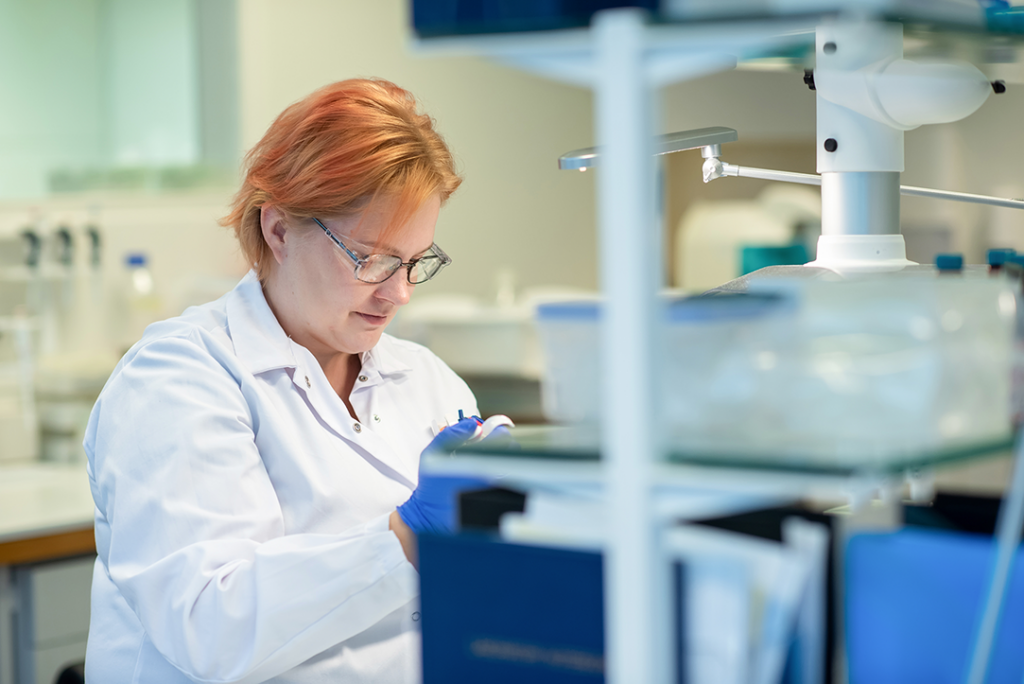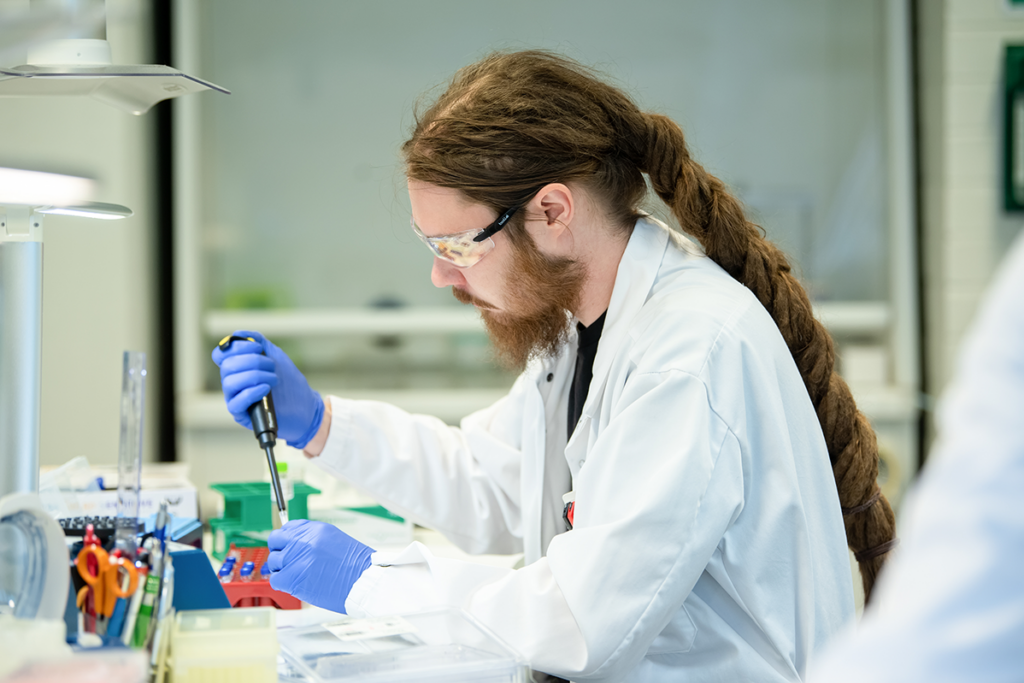For our customers with small molecules in the hit-to-lead stage of the project, Admescope understands the importance of a rapid design-make-test cycle; we now guarantee results within a week for frequently occurring screenings. This is one of our many R&D updates this year. Continuous early in vitro ADME support is available to assess initial parameters through streamlined protocols and automation, ensuring cost-effective solutions.
To provide an initial understanding of your compounds’ ADME profiles for fast decision-making and predicting in vivo parameters, we offer the following early ADME assays as a comprehensive package:
Kinetic solubility
A viable drug candidate must have sufficient aqueous solubility. Early identification of solubility issues allows the medicinal chemists to optimize the compounds as much as possible. Our kinetic solubility assay, conducted in PBS at pH 7.4 coupled with LC/MS/MS analysis, offers fast and accurate assessment of initial solubility with low test compound consumption.
LogD7.4

It is crucial to screen for logD and to understand compounds’ lipophilicity, which affects a wide range of ADME properties, such as absorption, permeability, stability and solubility. Our logD assay, optimized for high-throughput using liquid-handling robots, and analyzed with LC/MS/MS, provides high detection sensitivity for aqueous phase and covers a wide logD range.
Metabolic stability
Initial metabolic stability screening is typically conducted with human and rat or mouse liver microsomes. However, for certain compounds hepatocytes may be a better alternative, and stability screening can also be conducted in hepatocytes. Later, as required, soft spot metID incubations can be conducted to detect the metabolic liabilities in the structures.
Plasma protein binding
Understanding the level of plasma protein binding is essential, as only the unbound compound can reach its target and achieve therapeutic effects. Our early ADME package includes this assay using rapid equilibrium dialysis, the gold standard for small molecules. Typically, the assay is conducted using plasma from the same species used in the metabolic stability screening.
CYP inhibition
With the increasing prevalence of co-medications among patients, early consideration of potential drug-drug interaction risks is crucial and encouraged to be assessed also by the regulatory authorities as early as possible. Our early ADME screening package includes screening for direct CYP inhibition of the major 7 drug-metabolizing CYPs using an affordable and efficient cocktail approach. The tendency for time-dependent inhibition as IC50/IC50 shift determination can also be investigated as required.

Admescope can also support beyond the in vitro early ADME assays – fast TAT in vivo PK screening
After gathering initial in vitro data, we offer in vivo PK profile screening in mice and rats, typically over an 8-hour period. These protocols determine oral bioavailability but can be adapted for intravenous or oral dosing as preferred. To minimize animal use, multiple compounds can be pooled and administered as a cassette. We also provide full PK profiling, including excreta collection and rodent mass balance studies with radiolabeled compounds.
This comprehensive suite of services ensures that our customers can efficiently advance their drug development projects with robust ADME support.
Reach out to our team to discuss what kind of early ADME assay panel would suit best for your needs or request a quote through our Admeshop!
